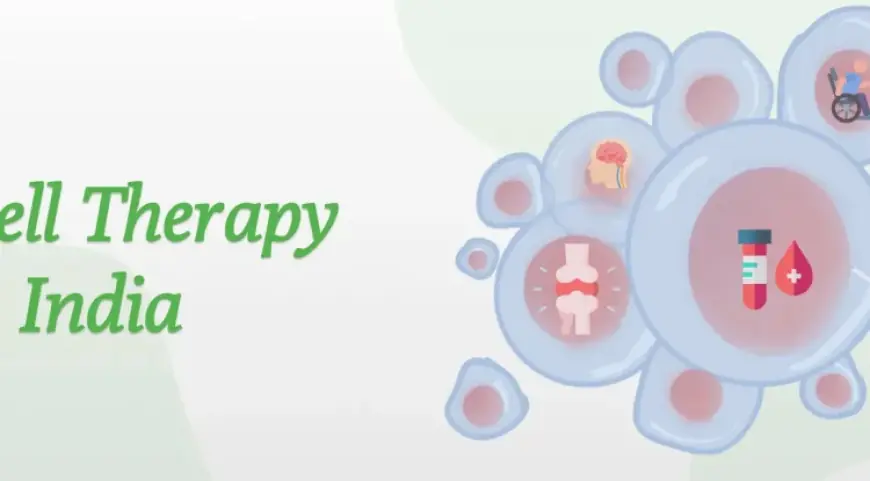How Stem Cell Therapy Beneficial for Other Diseases

Stem cell therapy is a revolutionary medical approach that harnesses the regenerative potential of stem cells to treat various diseases and conditions. Stem cells are undifferentiated cells that have the remarkable ability to differentiate into specialized cell types and regenerate damaged tissues. This article explores the benefits of stem cell therapy for a range of diseases and sheds light on the advancements in this field in India.
I. Introduction
Stem cell therapy in India is an emerging field of medicine that offers promising prospects for treating a wide range of diseases and conditions. Stem cells possess the unique ability to self-renew and differentiate into specialized cell types, making them invaluable for regenerative medicine.
II. Types of Stem Cells
There are different types of stem cells used in therapy, including embryonic stem cells, adult stem cells, and induced pluripotent stem cells. Embryonic stem cells are derived from early-stage embryos and have the potential to differentiate into any cell type in the body. Adult stem cells exist in various tissues and can differentiate into specific cell types found in the same tissue or organ. Induced pluripotent stem cells are artificially reprogrammed adult cells that acquire embryonic-like properties.
III. How Stem Cell Therapy Works
Stem cell therapy involves several steps, starting with the collection of stem cells. Depending on the type of stem cells used, they can be obtained from embryos, bone marrow, adipose tissue, or even reprogrammed from adult cells. Once collected, stem cells undergo differentiation and specialization in a controlled environment to obtain the desired cell type. Finally, these specialized cells are administered to the patient, where they can replace damaged or dysfunctional cells, promote tissue repair, and stimulate the body's healing mechanisms.
IV. Benefits of Stem Cell Therapy for Various Diseases
Stem cell therapy has shown great potential in the treatment of various diseases and conditions. A. Neurological Disorders Stem cell therapy holds promise for neurological disorders such as Parkinson's disease, Alzheimer's disease, and spinal cord injuries. Stem cells can replace damaged neurons and promote neural regeneration, potentially restoring lost motor and cognitive functions. B. Cardiovascular Diseases In cardiovascular diseases like ischemic heart disease and heart failure, stem cell therapy can help regenerate damaged heart tissue and improve cardiac function. Stem cells have the ability to differentiate into heart muscle cells and blood vessel cells, promoting neovascularization and enhancing the heart's pumping capacity.
V. Advancements in Stem Cell Therapy in India
India has made significant strides in the field of stem cell therapy, with notable advancements in research, clinical trials, and patient outcomes.
A. Research and Clinical Trials Leading research institutions and medical centers in India are actively involved in conducting stem cell research and clinical trials. These studies aim to explore the safety, efficacy, and long-term effects of stem cell therapy in various diseases. The findings contribute to the growing body of knowledge and provide valuable insights for future treatment approaches.
B. Availability and Accessibility Stem cell therapy is becoming more accessible in India, with specialized clinics and hospitals offering these services. The availability of diverse stem cell sources, including umbilical cord blood and adipose tissue, has facilitated the expansion of treatment options. Patients now have greater access to stem cell therapies, reducing the need for international travel and making treatment more convenient and cost-effective.
C. Success Stories India has witnessed several success stories in stem cell therapy. Patients who have undergone treatment for conditions such as spinal cord injuries, blood disorders, and degenerative diseases have reported positive outcomes. These success stories not only inspire hope but also highlight the potential of stem cell therapy to transform lives and improve patient well-being.
What's Your Reaction?




















